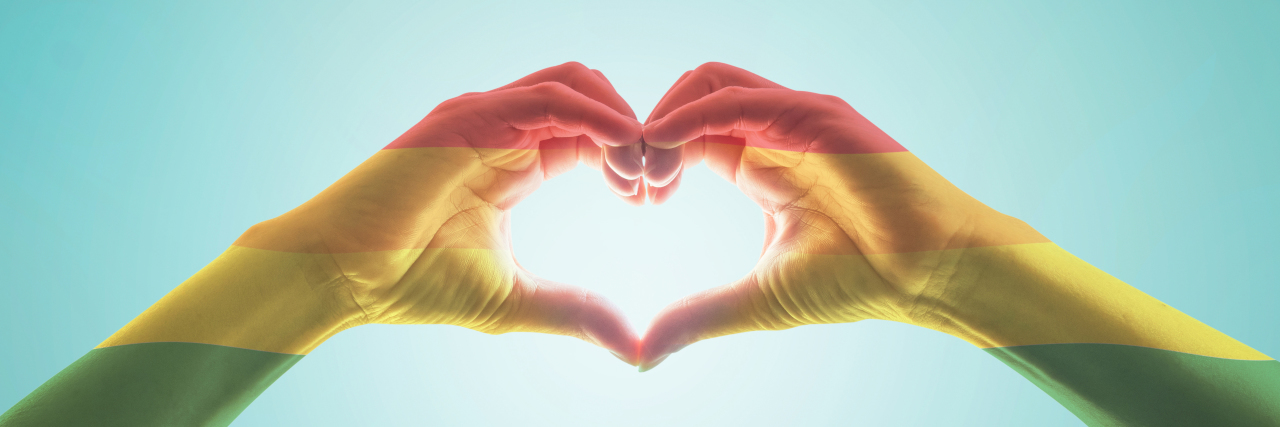What I Wish Someone Had Said to Me as a Young Disabled Lesbian
I never saw or heard these words enough growing up — I still don’t: People with disabilities can be gay, lesbian, bisexual, asexual, and everywhere in between. Here’s what happens when young, disabled, LGBTQ people don’t see those words enough:
At 5 years old, I realized I was disabled when I entered the mainstream classroom and saw I was the only one who looked and sounded like me. That’s when I also realized disabilities were something kids got bullied for.
At 8 years old, I realized I liked girls the way Disney taught me girls liked boys. That’s also when I realized bullies used words like “gay” the same way they used “freak.” Freak was a word I knew, and it was a word that made me feel small. I knew I couldn’t hide my disability. It was all over me in how I walked, talked, ate, and was made fun of. But, as long as I smiled at boys, talked about boys, and hung posters of boys, I could hide that I was gay. I could mitigate the freakishness.
At 19 years old, I fell in love with a girl. More importantly, I realized that I wanted to be in love with a girl because it felt right to me. But, 8-year-old me was still in the back of my mind telling me, “You can’t be both. It’s too much.” The reality was, I had no way to prove that little girl wrong. There weren’t any disabled lesbians I could show her to say, “See! Disabled people can be gay! You’re not that weird.”
At 20 years old, I had brain surgery I knew wouldn’t make me non-disabled, but perhaps less disabled. Maybe if I could be less disabled, I could be more gay? It made sense at the time. Soon after, I realized that was a terrible idea. I got an infection from the surgery. I walked around with a bandage bobby-pinned to my head and a hat on so no one had to see what was happening. My surgery had to be reversed, and I had to spend weeks on medication that made me feel like garbage.
At 21 years old, I realized I wasn’t happy. I hated hiding from the people closest to me. I was mad at myself for calling myself the harsh names I told bullies not to call me. Most of all, I wasn’t happy waiting to see the disabled lesbian I could show 8-year-old me and say, “See! Disabled people can be gay! You’re not that weird.” That disabled lesbian was there every time I looked in the mirror.
At 21 years old, I came out. And whatever apocalyptic event 8-year-old me had imagined didn’t happen. You could argue the scariest things happened when I was hiding who I was.
I didn’t come out until I was 21 years old simply because I thought it wasn’t possible to be someone like me. I went through so much unnecessary pain and scared the people I loved with bad decisions because I felt I had to balance fabricated normalcy scales.
So, if you’re reading this and looking around this Pride thinking, “I don’t see a [your sexuality/gender identity] with [your disability] anywhere,” please know you don’t need someone “like” you to validate your existence. You are already valid! Love yourself for being the exact person you’re looking for. Then, if you’re ready, say it out loud:
“People with disabilities can be gay, lesbian, bisexual, asexual, and everywhere in between. And we are beautiful.”
Please pass it on, and Happy Pride.
Getty image by Chinnapong.

